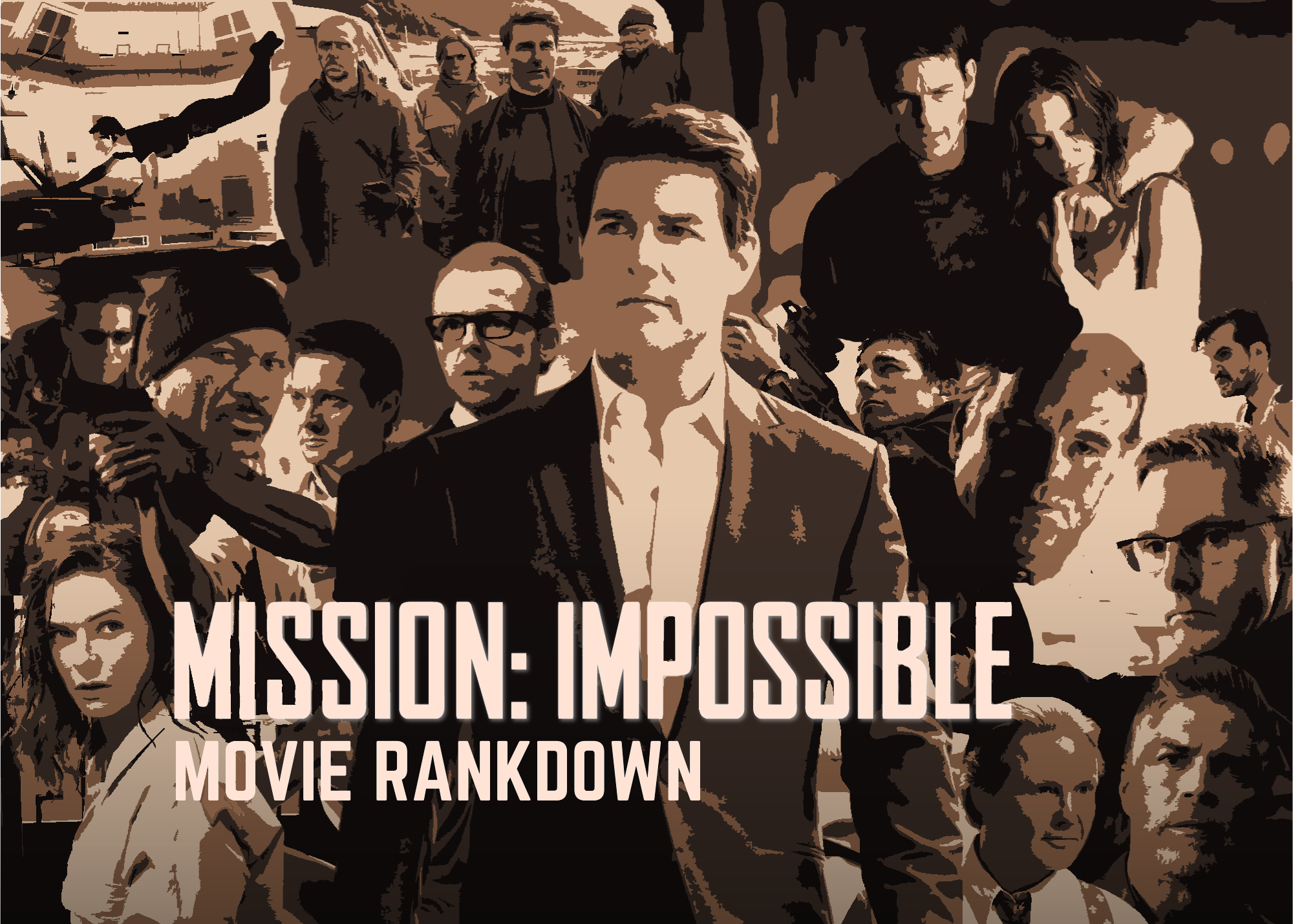The Underrated: Stone Cold Cruise Makes "Collateral" An Intense, Introspective Thrill Ride
In hindsight, we should've seen Tom Cruise's couch jump coming...
The UnderratedIn 1989, Stuart Beattie took a taxi home from the Sydney airport. As he sat in the cab, he had an idea: a psychopathic passenger in the backseat and the driver chatting away, oblivious to the lunacy of his customer.
It was a simple concept, one he drafted into a screenplay that endured years of development. The initial treatment involved a romance between a cab driver and his librarian girlfriend after a Black female cop witnesses a hit. As with many screenplays, it became a far cry from its conception, but through the various drafts and casting shakeups, swapping one superstar actor for another, one thing remained the same: the story was human.
It is not that way because it got written by a human, although that helps. It is a simple idea we know not only could happen, but has. We do not think highway disputes will spark deadly road rage, but it has. We do not imagine doing our job will draw the obsession of a lunatic, but it has. At some point, even if the passenger never offed the driver or forced him to chauffeur him on a contract killing spree, a psychopath has been in the backseat of a cab. Collateral asks what would happen if the driver got made aware.
It is a question that could veer into cheap tricks quickly, but Collateral forgoes the gore of a corny killer to stage the violence against a larger conversation. It does not rely on shootouts or manhunts. It forces its two characters, one a hired gun with a strict code of philosophical indifference, the other a cabbie enslaved to unfulfilled dreams and the fear of risking their realization, to discover each other.
Vincent is not the faux-noble killer screenplays often try for but fail to develop. He floats ideas about our place in the universe and the grand scheme of existence, but there are no half-baked theories of population control or stoner musings on the significance of life. He is just a man who does not care and has valid reasons for his apathy.
Despite his profession, there is a foundation to his worldview that parallels our own. We snicker at his rationale that it was not him but the bullets and the fall that killed his first victim because we do those things ourselves. But without self-awareness, only that general understanding that lets us recognize things familiar to us, we always feel distanced from Vincent.
It is how Collateral inspires us to debate our perceptions of good and evil, not within the philosophical confines of murder but how justified we are in criticizing others. Vincent's actions are wrong, but does that make him incorrect? Is he wrong to believe we are all just specks in the universe, without purpose or meaning, no cause to go on but the ones we invent for ourselves?
What of Max, whose cause is of us his own making, the same as his inability to seize it? He has a boss that mistreats him, a mother that does not appreciate him, and a woman he just met who will brush off their meeting should they never speak again. Vincent works for an organization built on replacement players, shuffling out the deceased for a warm body whenever necessary. If Vincent kills Max, or if someone kills Vincent, who notices?
In the abstract, no one, because we do not compel them to notice. We let our dreams slip away, layering our fears with excuses practical enough to throw us off the scent of our resistance. How about that girl? We can’t even call that girl. In a twisted way, we cannot lecture Vincent about murder.
But Collateral never forgets that he is flawed. It knows as Max cuts through his faux-profundity and to the core reality of Vincent’s existence: in the end, something inside him is simply missing. It never lets Vincent off the hook despite acknowledging the logic of his position and that, absent an emotional counter, it cannot get argued. But it also doesn’t allow Max to convince himself that just because he is right about Vincent that Vincent is not right about him.
Emotion is the death of logic, and logic is the great enemy of emotion. We cannot look past sentiment to acknowledge the opposition. We cannot forgo our beliefs to consider someone's feelings. These two men, riding in a cab in the early hours of the Los Angeles morning, cannot understand each other.
Collateral works best when it bats around these two people and their perspective on the world, how their opposition creates mutual understanding just as it prevents them from understanding themselves. It's a slow burn that cruises towards chaos to the tune of a soothing Groove Armada and the natural back and forth between an experienced cabby and his no-nonsense passenger. It works best when they set up a bet and show their cards when it plays out, when the hard-nosed attorney concedes and congratulates instead of excuses. It plays out a typical day to show how ordinary Max’s circumstances are, although the reality is extreme.
When it ramps up, crashing Max and Vincent in the middle of a quiet street, dueling in an escape attempt as the former spares Annie from the latter, it falters. Instead of a game of hunter vs. hunted, where the silent realization Vincent has in the cab as Max shatters his philosophy and calls out his emptiness does not play out. Max’s acceptance of Vincent’s rebuttal, how little agency he’s given himself by sacrificing his dreams, sees him flip a car for the sake of setting up the final act, but nothing of genuine substance. In the quiet maze of the Los Angeles subway, these two men have gained nothing from knowing the other. Escape does not get unveiled by a killer or predatory instinct combated by a cabbie. We get only the typical gun firing and glass shattering in a cliché Hollywood shootout plucked from a Western and placed into the back of a subway car.
It undoes all the quiet intensity, every moment of character exchanged between these men in a movie that pits two ideological enemies against each other in a slow burn of reveals and realizations. Collateral sets itself up well as the car gradually picks up speed to the death blows they deal each other’s philosophies, but fails to capitalize on it and resolve itself. For a film bent on saying something for so long, it settles for screaming nonsense at the end.
Nothing can undo Collateral’s human insight, all the ways moralists rationalize their lack of conviction with sentiment or how the intellectuals evade accountability with fun facts. But it smashes its credibility when it cannot reconcile how damning either position can be aside from the luck of the shot. In the end, Vincent dies, and he ponders if anyone will notice, but considering the formulaic movie action that precedes it, we cannot feel this was more than a matter of ending the movie. If it was commentary, it is hypocrisy. By the movie’s admission, both men were right, and both were wrong. It would be just as inconclusive to have Vincent succeed as to have Max stop him. If it was a bowtie ending for a film that didn’t understand itself as well as it thought, then it parallels us, but not in a way that works on screen.
It still has much to offer, not just the dialogue that asks questions the movie half-successfully answers, but an understanding of how to construct a thriller. It knows the story is too human to evade the trappings of a night shift, so it strands us in contemplation of our characters to inject quick bursts of humor. Its music ping pongs escalating the intensity and forcing us into thought, jacking its pulse in the Fever shootout and soothing it as we watch Max and Vincent expose each other before the cap gets flipped. It dims every environment without contrasting between them, feeling just as urgent in a jazz bar as a nightclub or even in a cab as it drives down the LA boulevards. It retains its tension by keeping its characters sincere to form, save a plot contrivance where Max pretends to be Vincent so they can get a second copy of the witness list.
But it is sad that its offerings get dimmed by its inability to commit to them and settles for gunfire when it could have stood its ground as a quiet, intelligent thriller. Regardless, Collateral creates a sense of fear by exploiting a one-in-a-million scenario that hits at a very human experience. We have all seen our lives be something one moment and flip on their head with the blink of an eye. We do not always reflect on the effect of those changes or what we can gain, even through tragedy, from clashing with someone entirely different from us.
Collateral knows its momentum lies in recognizing them, slowly embracing your situation as reality, and living your life accordingly. Within that progression, you accelerate change. With life on the line, Max becomes a different man, or at least gets forced to accept he is not what he claims. Vincent gets pushed into embracing that his rationales are platitudes, a mask for a broken man. Even if neither realizes these epiphanies enough to cement them, neither can escape them. When Collateral knows that, forcing them to war with words instead of guns, it is a first-rate thriller worth more than a pounding pulse.
.png)
93
Director - Michael Mann
Studio - DreamWorks
Runtime - 120 minutes
Release Date - August 6, 2004
Cast:
Tom Cruise - Vincent
Jaime Foxx - Max Durocher
Jada Pinkett Smith - Annie Farrell
Mark Ruffalo - Ray Fanning
Javier Bardem - Felix Reyes-Torrena
Peter Berg - Richard Weidner
Irma P. Hall - Ida Durocher
Bruce McGill - Frank Pedrosa
Barry Shabaka Henley - Daniel Baker
Jason Statham - Airport Man
Editor - Jim Miller, Paul Rubell
Screenplay - Stuart Beattie
Cinematography - Dion Beebe, Paul Cameron
Score - James Newton Howard

%20(13%20x%206%20in)%20(13%20x%204%20in).png)





































.png)






.png)